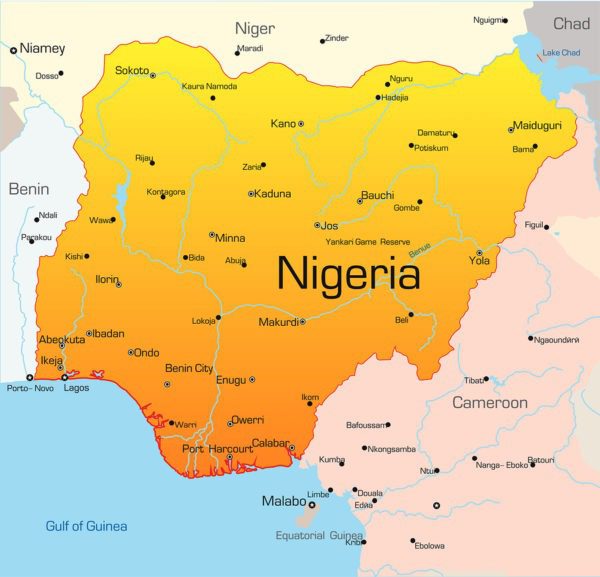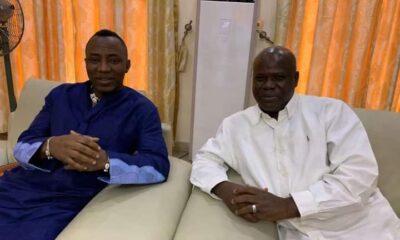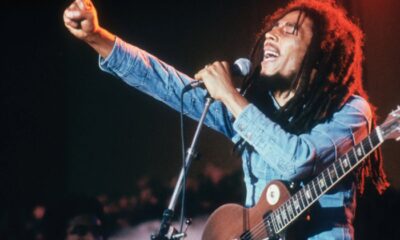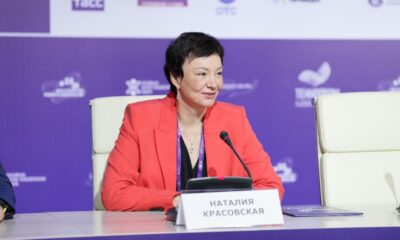Democracy & Governance
Nigeria and a star from the east -By Kene Obiezu
Nigeria’s historic return to democracy in 1999 ushered in the Fourth Republic. The permutations were always that having lived many years under the unbearably repressive tendencies of successive military regimes, the country could finally turn a new leaf in the hands of civilians and their presumed deference to the rule of law.

Discontent rumbles in the underbelly of the giant (gnat?) of Africa.
Nigeria is sat at table – but it is not a table flowing with a feast. Instead, it is one surrounded by long faces, and the startling irony of ample stomachs lining up alongside shrunken ones.
The celebratory mood which greeted independence from Britain in 1960 has long evaporated by 1967 leaving in its wake a hissy fit of discontent, disequilibrium and disillusion.
Today, the epic tragedy of the Civil War continues to haunt Nigeria.
Fifty-one years later, the ghostly cries of children who died of starvation during the war constitute a plaintive theme in the Nigerias funeral procession.
In Nigeria, Biafra remains an open wound crawling with maggots which bespeak the rot eating out the heart of the country, and the wrath boiling in one of its most important constituents.
Nigeria‘s historic return to democracy in 1999 ushered in the Fourth Republic. The permutations were always that having lived many years under the unbearably repressive tendencies of successive military regimes, the country could finally turn a new leaf in the hands of civilians and their presumed deference to the rule of law.
Though a military government was heavily involved in the process that drew up the 1999 Constitution, any constitution at all was better than ghoulish military decrees.
It is to Nigerias credit that, somehow, it has trudged on, its feeble democratic processes withstanding many whispers of impending military interference. On the road to the 1999 return to democracy, military men reinvented themselves in a bid to remain relevant in Nigerias new reality.
While Mr. Abdulsalami Abubakar chaired the transition to civilian rule, Mr. Olusegun Obasanjo, himself a former Military President, got the nod to become Nigerias President on the ticket of the Peoples Democratic Party. At the expiration of his tenure, faced with the ruthless transience of power, he found some appeal in the political dark arts of some African dictators who had twisted the constitution of their countries to perpetuate themselves in power.
However, his attempts to remain President beyond the 29th day of May 2007 ended in wildly embarrassing failure which only compounded his already divisive legacy. With Mr. Obasanjos exit came the entrée of the inimitable but infirm Mr. Umaru Musa Yar Adua. Death brutally cut short Mr. Yar Adua s time in office on May 5,2010. That Nigerians continue to nurse nostalgia over what could have been had death not struck is a timeless testament to the extraordinary goodness of the former Katsina State Governor. Mr. Goodluck Jonathan succeeded him. For long periods under Mr. Jonathan, Nigerians feared that a select clutch of master kleptocrats was about to sell off the giant of Africa. Such was the plunder. Such was the putrefaction. In 2015, Mr. Muhammadu Buharis decades-long dream to rule Nigeria again in spite of the little he had to show for his time in office as a Military President, came to pass.
But many Nigerians wish that the dream had remained only a dream.
In six years that have felt more like six decades, Nigerians have swiftly gone from eating sour grapes under Mr. Jonathan and the PDP to eating sand under Mr. Buhari and the APC and then having nothing at all to eat.
It is not just the wild insecurity that ravages large swathes of the country; for many families, the cupboards are not just bare of provisions, they are barren of hope.
Now, with the 2023 elections around the corner, and all major ethnic groups and regions in the country having had a slice of the presidential pie either by producing the president or vice president or both, an Igbo conundrum stares Nigeria square in the face like a cobra hypnotizing its prey.
Already, forceful agitations for Biafra convulse the country, bearing in its loud protestations an unmistakable demand for inclusiveness and equity.
With the Peoples Democratic Party in such a disarray as to cast monumental doubt on its ability to seriously challenge for Nigerias highest office, it remains to be seen whether the aging power mongers and tribalists of the APC will look towards the southeast in their search for the star that will lead Nigeria to redemption. But why should the Igbos produce Nigerias next president? The arguments against have been largely harsh, hollow and hideously hypocritical.
However, when the noisome noise subsides, the discerning will know that in a country notorious for its merry-go-round, because other regions of the country have had their time in the sun, many with embarrassing results, the time has come for a Nigerian president of Igbo extraction.
The argument that it does not matter where the president comes from as long as he performs while in office bears all the hallmarks of typically hideous Nigerian hypocrisy.
Every major ethnic group in the country (and even a minor one) has given Nigeria a president and none of them has performed creditably so far.
The question of a Nigerian president of Igbo extraction transcends ethnicism or puerile party or regional politics. In a country desperate to redeem its image, it has become a question of equity, equality and justice.
It has come down to the simple logic of laying out what is sauce for the goose for the gander.
For Nigeria, there is also a question of competence and grit in the face of many daunting challenges.
Who better to lead a country facing daunting challenges than one drawn from a tribe of survivors which defied the ruthlessness of fate and the bottomless wickedness of men to rise like a phoenix from the ashes of the Nigerian Civil War.
Then, there is the question of convenience. Every other day, the haunting howls of the IPOB assail Nigerias aural senses. Nigeria must fear the ideology of the agitation but especially the sophistication of the agitators. It is telling of the countrys strategic intelligence that it rather allows itself to be preoccupied by the crude modus operandi of Boko Haram, ISWAP and their ragtag army of street urchins.
Like in biblical times, it took a star rising from the east to draw the magi into the redemptive presence the king born to the Jews, and open the eyes of the people to the royalty among them whom they had not known.
The arrival of the three wise men and their poignant questions about the newborn king kindled Herods murderous folly. A similarly murderous folly was kindled in 1967 when at the behest of Herod-like characters, thousands of children were starved to death.
However, the time is now for every saboteur of the Nigerian project to be forced onto the back foot so as to give the new dawn breaking from the east a chance. To do otherwise is to become Herod in all his heinous and hideous folly. Nigerias search party for a star must head to the east. There is no other option.
Kene Obiezu,
keneobiezu@gmail.com










